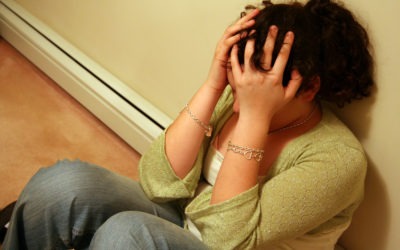Well-Being. Victim.
One way to greater sense of well-being is to let go of the victim mentality. The greater your sense of well-being, the less you choose to give power to the victim mentality. The unabridged version of the Random House Dictionary of the English Language defines victim, as “a person who suffers from a destructive or injurious action or agency… a person who is deceived or cheated… a victim is misplaced confidence.”
Based on this definition, we’re all victims to some degree, because we’ve all been hurt, deceived, cheated on, or disappointed. Perhaps you’ve had a life experience that colored your view of the world. Maybe you had a series of bad breaks. Were you a person who suffered at the hands of a cruel and misguided person, e.g., a parent, a teacher, a member of the clergy, a sibling, another family member, someone at school or work, or an employer. Often things happen to us, because we are seen by a more powerful or authoritarian person as vulnerable. In deed, we’ve all been hurt–some more than others.
Regardless of the reason, it is to our advantage to release ourselves from the grip of victim hood. One of the best reasons for letting go of the victim mentality is the sense of power we gain from having control over our lives. A greater sense of well being. Well-being is a term tossed about, especially today. The more focused I am on staying balanced and maintaining some semblance of healthy well-being, the less I want to be a victim. It takes effort. It’s hard to shift gears–to move from victim to victor. But it’s worth the effort.
Benefits for Seeing Ourselves as a Victim.
Despite the many benefits that come from letting go of the victim mentality, there are far more payoffs. For example:
- Victims always have someone to blame. When things go wrong, no matter what part you play, if you’re a victim and the outcome is negative, it’s never your fault.
- As victim, you have permission to be just depressed, and most people will not care enough to expect you to “get on with it.
- You’ll never be expected to rise above your beginnings and make something of yourself.
- That you won’t be encouraged to “let go and let God” regarding your past, because you just can’t do it.
- No one will ever say, “get off the couch and stop taking drugs, drinking booze, and eating bon bons.”
- You’re in good company. There are far more people seeing themselves as victims who are taking responsibility for their choices. You’ll always fit in with the majority.
Cycle of Victimhood Hard to Break.
The cycle of victimhood is hard to break, because it’s safe, it’s familiar, and requires little effort to sustain. As a result, it takes willingness, a real willingness to walk through the fear that stands between self-empowerment and a victim consciousness. How do we break the cycle?
One of the quickest ways to shift from an empowered person is by making different and healthier choices. You do that by thinking through your process before you make a final decision. You do it by having the courage to ask questions for clarification and by keeping your eyes and ears open. You do it by thinking through the consequences of your actions. But mostly, you do that by creating the intent to stop giving other people the power to control your thinking AND your behavior. What three actions can you take today that will help you feel more empowered?
Taking Responsibility Does NOT Mean No Accountability for the Culprit.
Taking responsibility for your feelings does NOT give the culprit a pass. Let me repeat, taking responsibility for my feelings and choosing not to hold on to my old victim beliefs does not in ANY WAY suggest that the culprit should run free. They should be punished. In fact, if you inflict harm on a more vulnerable person or animal, you should be made to pay, regardless of how ago it was. People who do horrible things should pay the consequences. By the same token, I don’t want to continue allowing them to live rent-free in my brain.
Until next time,
I’m Francine Ward.











